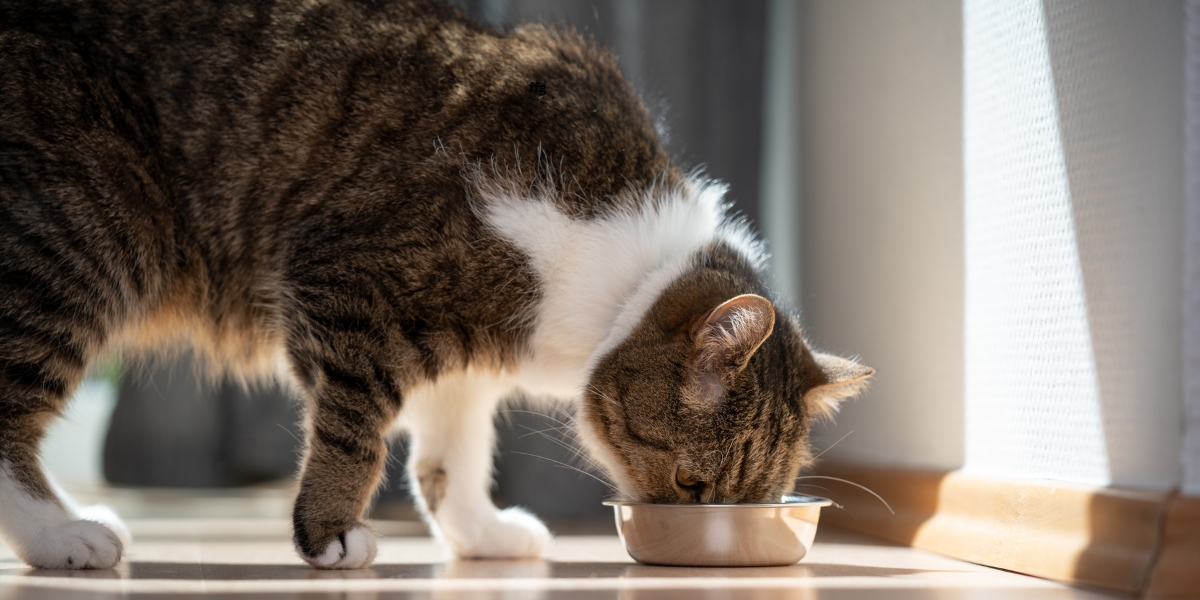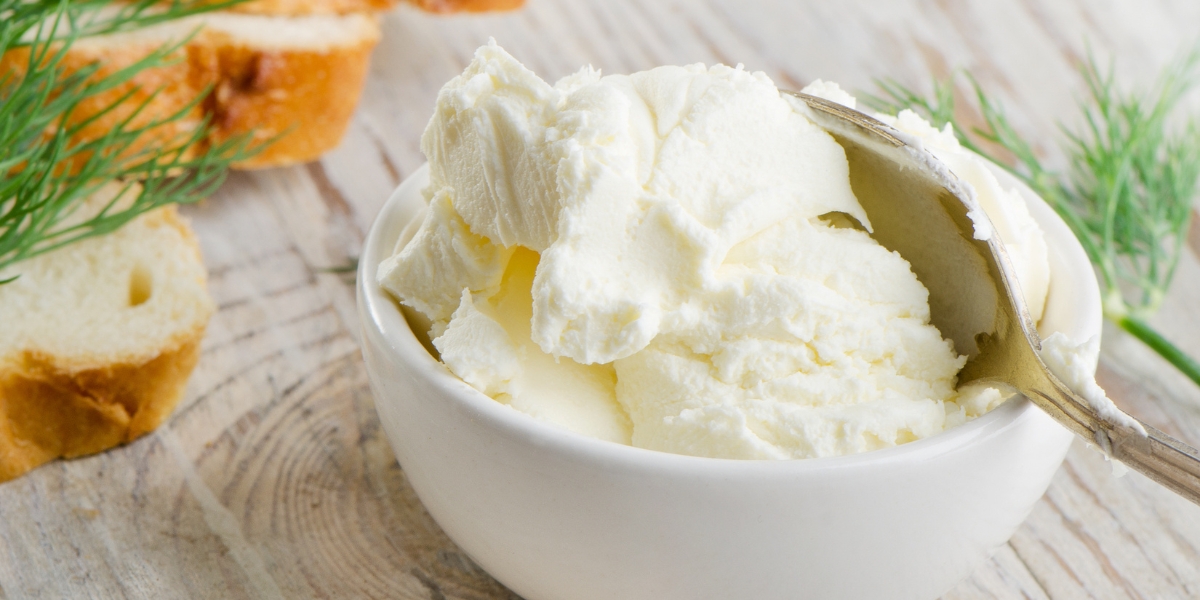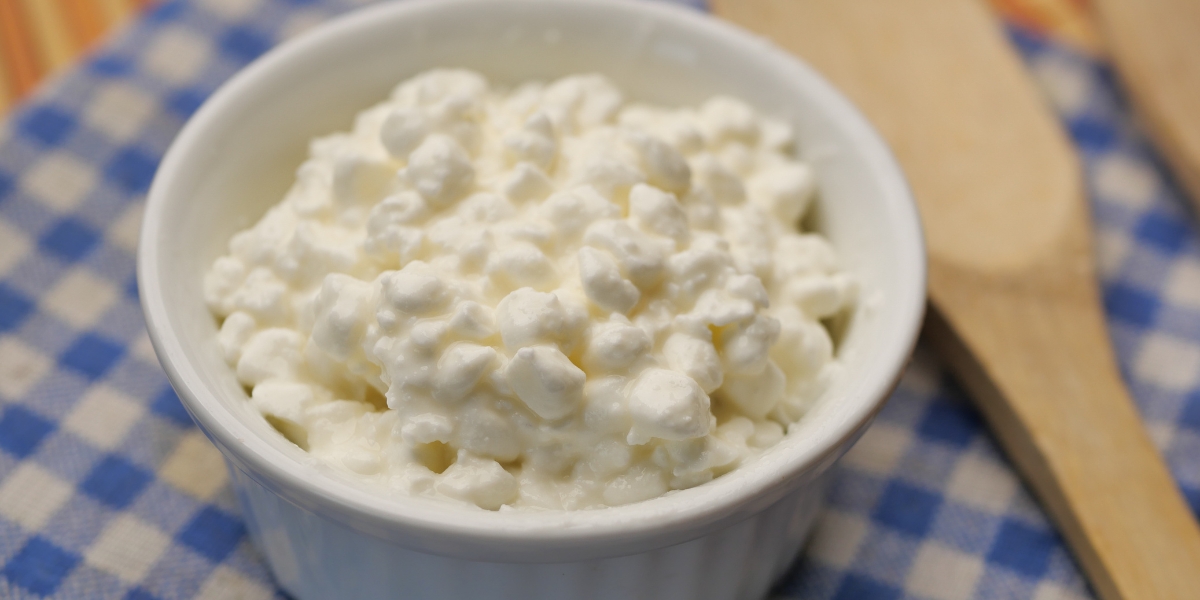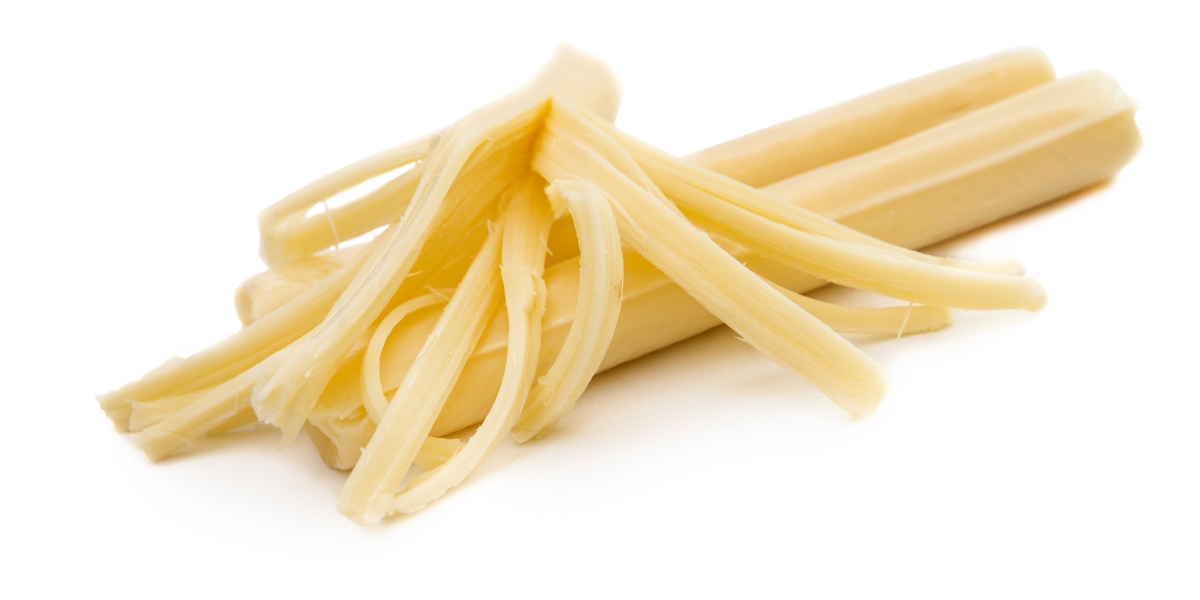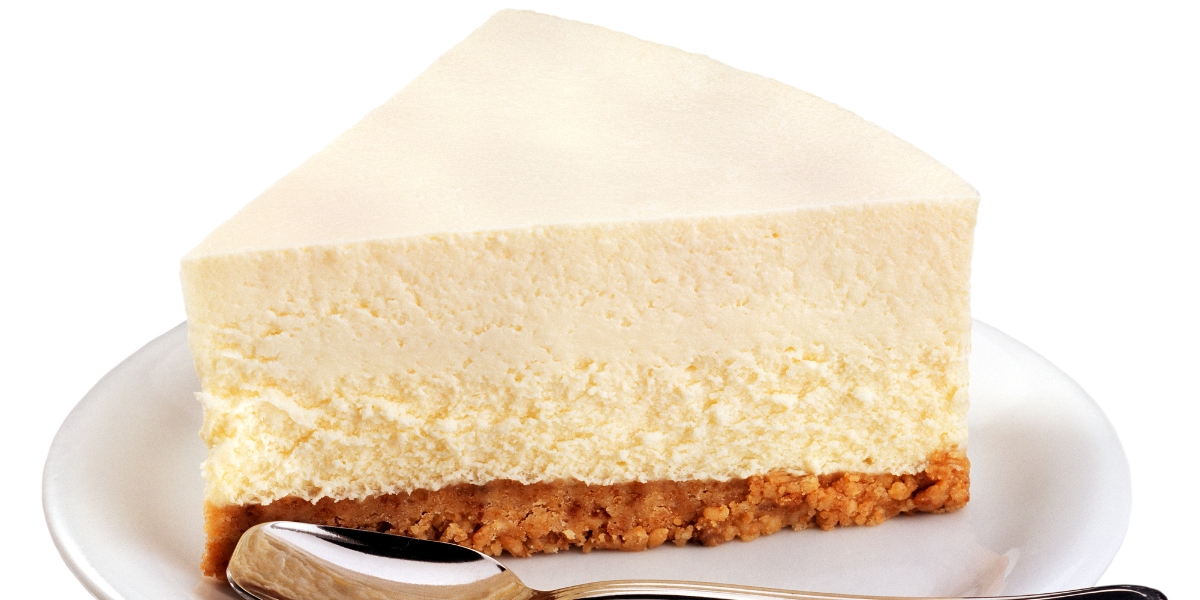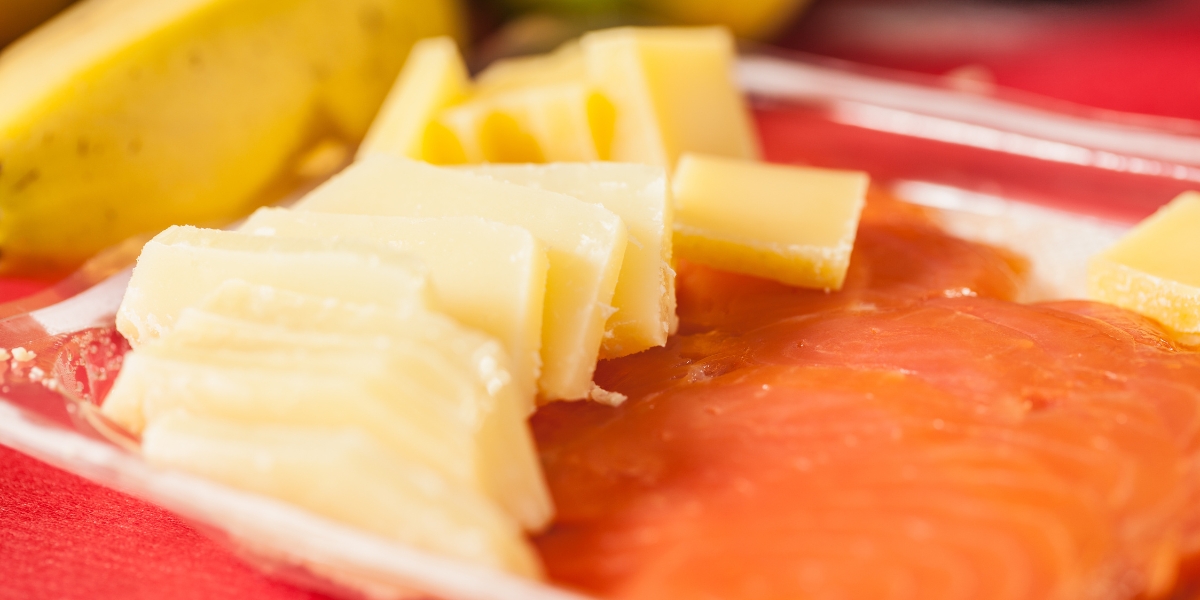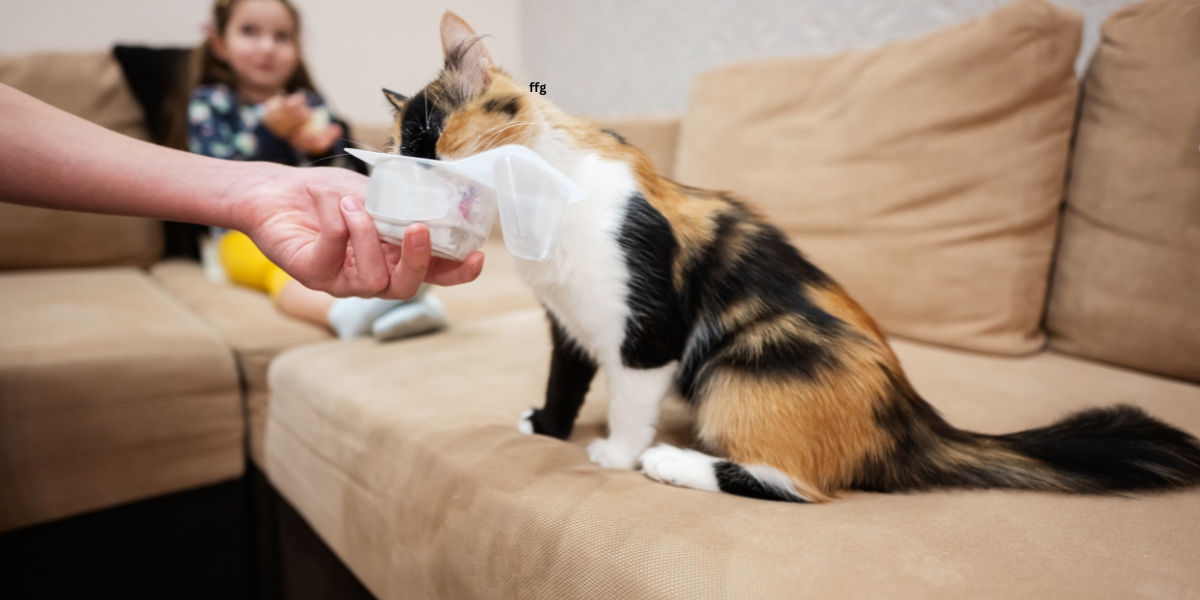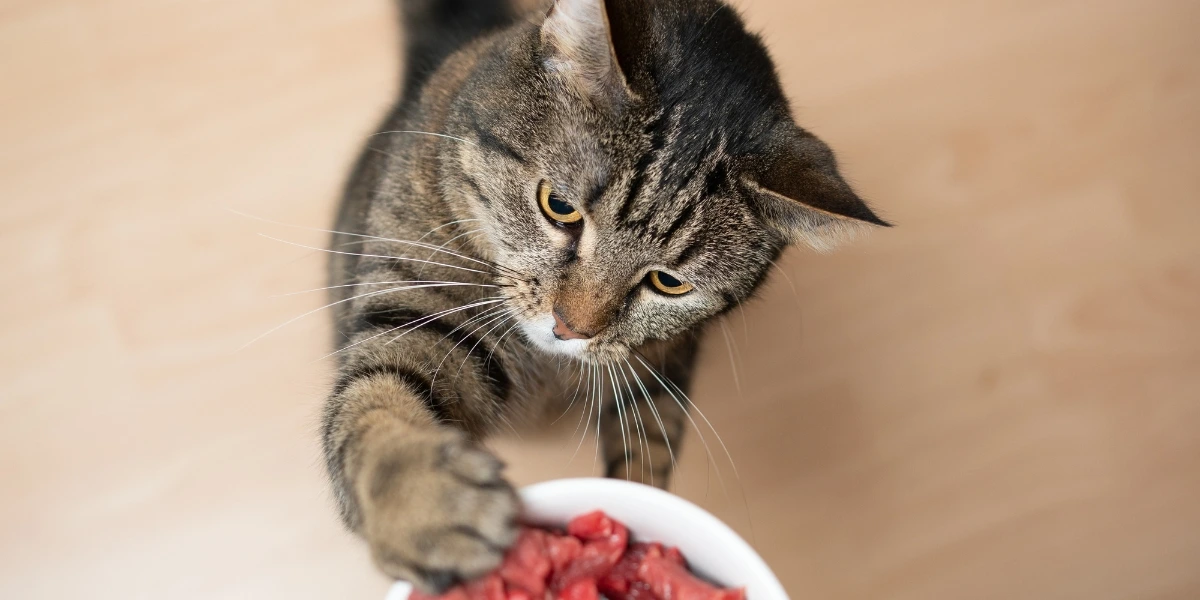Cats may seem to love dairy foods, but it’s a stereotypical belief that doesn’t align with the actual nutritional needs of their stomachs. While cream cheese is a dairy product that some cats might crave for its higher fat content compared to other products, their bodies are unable to digest it properly. Even a pea-sized amount can upset their stomachs, making it far from the best option for your furry friend.
From a nutritional perspective, step back and consider their natural intolerance to dairy. If you’ve noticed your cat sneaking a taste of cream cheese, think twice before letting them turn it into a habit. To safely share a treat with your kitty, follow strict guidelines by limiting options and avoiding dairy altogether. This article discusses everything you need to keep in mind when giving food to your cat to ensure their health and happiness.
And for more information on other foods and drinks that might not be safe for your cat, check out Is Orange Juice Safe For Cats?
Can Cats Eat Cream Cheese?
Cream cheese is not toxic to cats but should be avoided due to its high lactose and fat content, which can cause digestive issues like bloating and diarrhea. While some cats may enjoy it, it’s not a suitable treat for regular consumption. Opt for healthier alternatives to ensure your cat’s digestive health.
Is Cheese Bad for Cats?
Cheese isn’t toxic to cats, but it should only be given in moderation as an occasional treat. While it contains protein and calcium, these nutrients are already satisfied by a meat-rich diet because cats are obligate carnivores. Feeding dairy products like cheese does little to meet their dietary needs.
For many cats, lactose intolerance is a concern, especially in adult cats. Eating even a small amount of milk or cheese can cause gastrointestinal upset, such as vomiting, diarrhea, gas or abdominal pain. Cats with a dairy allergy may react more severely to such products.
Another concern is the high calories in cheese. A 1-ounce square of cheddar is equivalent to a cat scarfing down the calories in two and a half cheeseburgers for humans. If cheese is offered, limit it to a dice-sized square once or twice a week to avoid overfeeding while making it a safe, gratifying treat.
The Potential Downsides of Cream Cheese
Cream cheese may seem harmless, but it contains lactose, which many cats struggle to digest. While kittens secrete the enzyme lactase in their digestive tract to break down their mother’s milk, this ability mainly disappears by adulthood. Similar to human lactose intolerance, adult cats often cannot process dairy products like cream cheese, leading to an upset stomach or other digestive issues.
Interestingly, some cats retain the ability to handle dairy products as they grow older, but this is rare. Most cats develop lactose intolerance, though their levels of lactase production can vary. Cream cheese has less lactose than milk but still contains more than most cats can comfortably digest. This makes it risky, especially if consumed regularly or in larger amounts.
Additionally, cream cheese is quite high in fat, which can be problematic for cats. While they need meat to stay healthy as obligate carnivores, their ideal diet includes high protein and only moderate fat levels. Excess fat from cream cheese can negatively affect their digestion and overall health, even for those few felines who can handle small amounts of lactose. For more information on high-protein food options, check out this guide on canned chicken breast for cats.
Feeding your cat cream cheese may seem like a treat, but its high-fat content and lactose make it unsuitable for regular consumption. For a cat’s digestive system to thrive, it’s best to avoid foods like this that aren’t tailored to their nutritional needs.
Potential Signs After Eating Cream Cheese
If your cat consumes cream cheese, they probably won’t show severe clinical signs, but mild discomfort is common. Much like people with lactose intolerance, cats may experience bloating, pain or diarrhea due to undigested lactose drawing water into their intestines and being fermented by intestinal bacteria.
In some cases, a cat may have a stomach upset with cramps, becoming prone to accidents outside the litterbox. These signs often pass within a few hours as the lactose leaves their system. However, if your cat experiences severe diarrhea, it can lead to dehydration, and you should visit a vet to get fluids by IV if their condition worsens.
Vomiting is rare but can happen if the digestive tract is irritated. Some cats react faster due to being sensitive to lactose or the fat content in cream cheese. Watch for pawing at the mouth or other signs of discomfort and avoid giving cream cheese again.
What Cheeses Can Cats Eat?
When it comes to cheese, moderation is key. A dice-sized square of firm, plain cheese like cheddar with no additives can be shared once or twice a week if your cat isn’t allergic or lactose intolerant.
Avoid giving more than a 1-ounce square, as this equals the calories in two and a half cheeseburgers for a cat. Always consider your cat’s health before scarfing down a treat.
- Cheddar
- Swiss
- Parmesan
- Provolone
- Gouda
- Goat cheese (Higher in fat and lower in vitamin D then some other cheeses.)
Softer cheeses often have higher lactose, so stay away and avoid them.
- Cottage cheese
- Cream cheese
- Mozzarella
- Brie
- Blue cheese
- Camembert
- American cheese (Processed food is high in carbohydrates.)
1. Cream Cheese
Cream cheese is a softer cheese that contains more lactose than many other varieties, making it a no-no for cats. Feeding it can likely trigger an episode of vomiting or diarrhea, so it’s best to keep it off the list of cat-friendly cheeses.
2. Cottage Cheese
While cottage cheese is relatively high in lactose, it can cause gastrointestinal distress in many kitties.
Although it might be tempting to share a carton, it’s best avoided as it offers no real benefit for cats and may lead to an empty tummy upset.
3. String Cheese
String cheeses like mozzarella and provolone are made from soft or slightly firmer cheese, but they’re still high in lactose.
Many cats are sensitive to lactose, making even a small bite likely to upset their tummy. While Provolone is often better tolerated, it’s still best to say no to sharing string cheese with your kitty.
4. Cheesecake
Cheesecake may seem tempting to share with your cat, but it’s not a good idea. It contains soft cheese, like cream or ricotta, along with additional ingredients that could make your kitty sick.
Some components may even be toxic to cats, so it’s best to avoid offering this dessert.
5. Cheez-Its
Cheez-Its are baked crackers with cheese and additional ingredients that add calories, fats, and carbs. These empty calories offer no nutritional value for cats and should be avoided as a treat.
Opt for healthy treats instead to support your cat’s well-being.
My Cat Ate Cheese. What Should I Do?
If your cat has eaten a small amount of cheese, most healthy cats will be fine, though you might notice some gastrointestinal upset. They may experience mild discomfort, but it usually passes quickly. However, if you notice that your kitty is feeling unwell, with a reduced appetite, vomiting or diarrhea, it’s important to call your veterinarian.
This is especially true for cats with:
- Inflammatory bowel disease (IBD)
- Diabetes
- Liver disease
- Pancreatitis
What Are Some Alternatives to Cream Cheese?
If you want to treat your cat without resorting to cream cheese, consider offering unseasoned meat as an option. When cooking, be sure to never add seasonings since certain ingredients can be toxic to cats. Meat is a great, complete, and balanced alternative, as it closely mimics what cats would eat in the wild. It’s important to serve it in small amounts, making sure it doesn’t replace the primary part of your cat’s diet.
For a more innovative approach, pet owners can explore cat-friendly treats like those from brands such as Hepper and NomNom, which are designed to satisfy specific needs. Always make decisions based on what will help keep your cat happy and healthy, and be mindful of serving sizes. Using a small spoon or even a tiny finger tip can ensure you offer just the right amount for your kitty to enjoy.
How to Safely Feed Your Cat Cheese
When you want to share a cheese snack with your kitty, it’s important to cut the cheese into small pieces, like a dice-sized square or a small cube, so they don’t gulp it all in one bite. Make sure the amount of cheese given is limited—no more than once or twice a week. If your cat doesn’t have a lactose intolerance or a dairy allergy, a little cheddar or Swiss can be a special treat.
To avoid any issues, serve cheese in moderation and monitor your kitty for any signs of discomfort. If you notice vomiting or diarrhea over the next few days, it’s best to stop giving cheese and break down the serving into even smaller pieces next time. Offering cheese in small amounts and limited servings is key to keeping your cat happy and healthy.
Conclusion
While cream cheese is not inherently toxic to cats, its lactose content and fat can cause digestive problems for many felines. Some cats may enjoy the taste if they’ve snuck a bite or two, but serving it regularly could lead to an upset stomach or worse. It’s best to avoid giving them cream cheese and stick to healthier treats designed for their dietary needs.
If your cat does happen to eat cream cheese, watch for signs of discomfort like diarrhea or bloating. Most likely, it will pass after a few hours, but if symptoms worsen, it’s important to consult with a vet. Cats can enjoy dairy products in moderation, but cream cheese is better kept out of their diet due to its high fat and lactose content.
You may also want to check out:
Is Baking Soda Harmful For Your Cat
Note: Before introducing any new foods like cream cheese to your cat’s diet, it’s a good idea to check with your veterinarian. What may be OK for one cat might not be suitable for another, depending on factors like age, health, or diet. Cats with certain conditions or on prescription diets might need to avoid such treats, especially if they are fed outside their usual diet.


